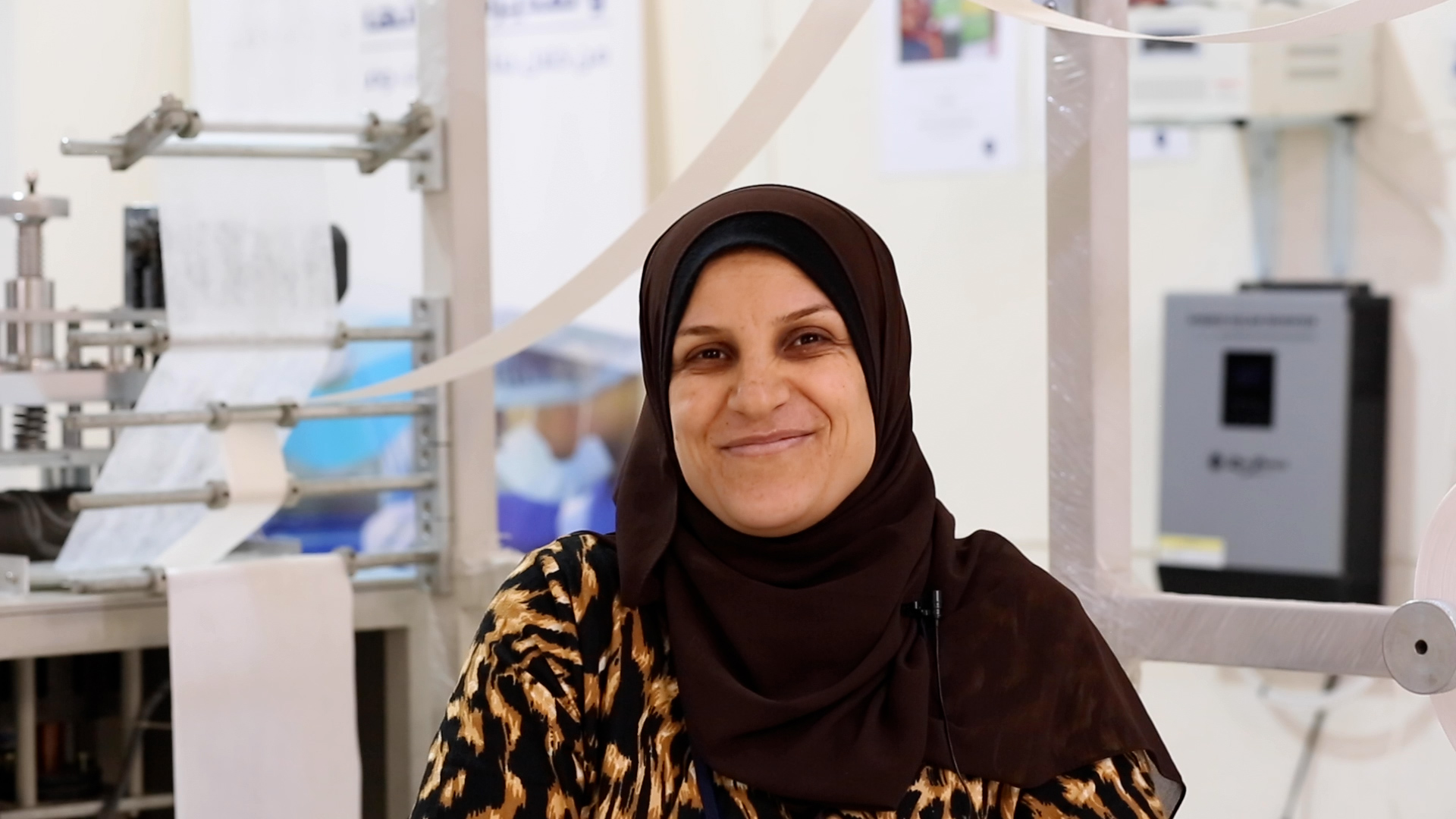From where I stand: “Today, I no longer feel belittled; I trust myself enough to succeed”
Date:
Fadilah Yassin Suleiman fled Syria with her family in 2016, 5 years after the war broke out. The 35 years old mother of two lost her husband two years after arriving in Lebanon and has been the sole caregiver for her family ever since. After joining a UN Women initiative as a manufacturing trainee in a unit producing quality and affordable menstrual hygiene items with the social enterprise Roof and Roots in Jabal Mohsen, Tripoli, she has since regained her confidence to trust in herself to succeed and felt empowered to stand up for herself and better protect her children.


When my husband passed away, his family in Syria made it clear that while my five-year-old boy and my seven-year-old girl remained in their family, I did not. They asked me to give them custody of our children and told me to marry again and move on with my life. Whenever I am away from the children, I always worry the family of my late husband will come to Lebanon and will take them.
It has been very hard surviving the Lebanon’s economic crisis and currency crash. Keeping up with the soaring prices of essential goods has been a real challenge. I work as a cleaner, and I cannot make ends meet. Eight months ago, I had to make the hardest choice of my life; I asked my son and daughter to sell tissue paper on the street to help me pay rent. My son was hit, and my daughter was almost kidnapped twice while working. Luckily both times, she was saved by people passing by. Even though she was physically unharmed, her mental health has deteriorated a lot. I decided I could no longer ask them to sell things on the streets. Unable to make enough money to buy the food we need; we began restricting what we ate to only a piece of bread a day. I would rather do this then risk losing my children to the streets.
When I heard about the ‘Roof and Roots’ production unit, which produces affordable sanitary products and was looking for trainees, I thought it might be an opportunity for change. I was right, this project has changed my life. I signed up and joined the unit with 119 other women and as part of the production team, I have received trainings on how to operate machines to produce sanitary pads. I have participated in trainings before, but none have been as useful as this one. Through this opportunity I have been able to make some money – which has helped me to feed my children today, and I have learnt new skills that will help me earn money in the future.
At the training, I felt safe, surrounded by other women and the trainers, a feeling that I had been lacking. Other trainees encouraged me to stand up for myself and my children. For example, they encouraged me to report my husband’s brother to the police, which I have done. The police officers have been supportive and encouraged me to call them next time he is abusive.
The menstrual pads that we have been producing through Roof and Roots are of excellent quality, made of natural cotton, and sold for 12,000 LBP only. This makes them a safe and affordable choice for most women and girls.
Many women often feel embarrassed to talk about menstruation, which is a natural biological process. Due to stigmatization and the fear related to late issues of menstruation, health issues related to infections have unfortunately been on the rise. I have been advocating for speaking up about menstruation and encouraging women and girls to seek proper healthcare.
I have found strength, self-love, and a renewed self-confidence. People used to think that working as a cleaner was shameful, and they did not show me respect. Today however, I no longer feel belittled; I trust myself enough to succeed.”
Fadilah is one of 120 women who joined the manufacturing unit led by Roof and Roots social enterprise in Jabal Mohsen, Tripoli, with the support of NGO ACTED and UN Women and funded by the Government of Japan, to address women’s increased need for safe and affordable hygiene products, in light of Lebanon’s soaring economy and the rise of period poverty. The manufacturing entity in Tripoli produced an initial batch of 13,500 packs of menstruation items by March 2022, which were sold through door-to-door sales by women participating in the project, with a percentage of revenue distributed to vulnerable women residing in the area.
Fadilah’s story illustrates the importance of achieving Sustainable Development Goal (SDG) 5 on gender equality and the empowerment of women; and SDG 10, which calls for reducing inequalities in income as well as those based on age, sex, disability, race, ethnicity, origin, religion or economic or other status.